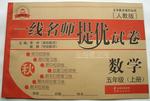ÌâÄ¿ÄÚÈÝ
¡¡¡¡Some small children don¡¯t know it¡¯s not polite to laugh at others. Some of them often laugh at a lame£¨È³£©or blind£¨Ã¤µÄ£©person, or someone in bad clothes. But as they grow up£¨³¤´ó£©, they learn not to hurt people¡¯s feelings by laughing at their problems. They learn to laugh at other things. Most important, they learn to laugh at themselves£¨ËûÃÇ×Ô¼º£©. For example, you make a mistake and lose in a basketball match. Do you become angry? Or can you laugh at yourself and hope to do better next time? If you can, you really grow big.¡¡¡¡1£®The passage tells us to laugh at other¡¯s problems is not _________.
¡¡¡¡A. bad¡¡¡¡ ¡¡¡¡¡¡¡¡¡¡¡¡¡¡¡¡¡¡¡¡ ¡¡¡¡¡¡¡¡¡¡¡¡ B. polite¡¡¡¡¡¡¡¡¡¡¡¡ ¡¡¡¡¡¡¡¡¡¡¡¡¡¡¡¡¡¡¡¡ ¡¡¡¡ C. easy
¡¡¡¡2£®When small children grow big, they learn _________.
¡¡¡¡A. to hurt people¡¯s feelings
¡¡¡¡B. not to hurt people¡¯s feelings
¡¡¡¡C. to laugh at blind persons
¡¡¡¡3£®We know from the passage, ¡°not to hurt people¡¯s feelings¡± means _________.
¡¡¡¡A. small children nearly grow big
¡¡¡¡B. not do anything better next time
¡¡¡¡C. still laugh at others problems
¡¡¡¡4£®The most important thing for children is to learn to _________.
¡¡¡¡A. laugh at other¡¯s problems
¡¡¡¡B. win basketball matches
¡¡¡¡C. laugh at themselves

 Ò»ÏßÃûʦÌáÓÅÊÔ¾íϵÁдð°¸
Ò»ÏßÃûʦÌáÓÅÊÔ¾íϵÁдð°¸A thousand years ago Hong Kong was covered by a thick forest. As more and more people came to ¡¡1¡¡ in Hong Kong, these trees were cut down and burnt. Now there is ¡¡2¡¡ forest left, though there are still some small areas covered with trees. We call these woods.
Elephants, tigers and many ¡¡3¡¡ animals were living in the thick forest. When people came to live in Hong Kong, the ¡¡4¡¡ began to die out. Early farmers grew rice and ¡¡5¡¡ pigs and chickens in the valleys. They cut down the trees and burnt them. They needed ¡¡6¡¡ to keep themselves warm in winter, to cook their food and to keep away the dangerous animals. Elephants quickly disappeared because there was not enough food for them. So did ¡¡7¡¡ of the wolves and tigers. Monkeys and many other animals soon ¡¡8¡¡ in the same way.
You might think that there are no longer any animals in Hong Kong ¡¡9¡¡ in the zoos. But there are still about 36 different animals ¡¡10¡¡ there. One of the most interesting of Hong Kong's animals is the barking deer. These are beautiful little animals ¡¡11¡¡ a rich brown coat and a white patch (²¹¶¡) under the tail. They look like deer but they are much smaller. They are less than two feet£¨Ó¢³ß£© ¡¡12¡¡. They make a noise rather like a dog ¡¡13¡¡. In Hong Kong the barking deer has only a real enemy--¡¡14¡¡. People hunt these little animals though it is illegal (Î¥·¨µÄ). There are now not many barking deer left. So it is important ¡¡15¡¡ people to protect wild animals.
| ¡¾Ð¡Ìâ1¡¿ |
|
| ¡¾Ð¡Ìâ2¡¿ |
|
| ¡¾Ð¡Ìâ3¡¿ |
|
| ¡¾Ð¡Ìâ4¡¿ |
|
| ¡¾Ð¡Ìâ5¡¿ |
|
| ¡¾Ð¡Ìâ6¡¿ |
|
| ¡¾Ð¡Ìâ7¡¿ |
|
| ¡¾Ð¡Ìâ8¡¿ |
|
| ¡¾Ð¡Ìâ9¡¿ |
|
| ¡¾Ð¡Ìâ10¡¿ |
|
| ¡¾Ð¡Ìâ11¡¿ |
|
| ¡¾Ð¡Ìâ12¡¿ |
|
| ¡¾Ð¡Ìâ13¡¿ |
|
| ¡¾Ð¡Ìâ14¡¿ |
|
| ¡¾Ð¡Ìâ15¡¿ |
|
²¹È«¶ÌÎÄ¡££¨¹²10СÌ⣻ÿСÌâ1·Ö£¬¼Æ10·Ö£©
Ó÷½¿òÄÚËù¸øµ¥´ÊµÄÊʵ±ÐÎʽÌî¿Õ£¬Ê¹¶ÌÎÄÍêÕû¡¢Í¨Ë³¡£
| thousand, many, change, help, make, in, close, they, also, little |
You can spend ¡¾Ð¡Ìâ5¡¿¡¡¡¡¡¡¡¡ and improve your health better at the same time, so
¡¾Ð¡Ìâ6¡¿¡¡¡¡¡¡¡¡ to save the environment is a good exercise!
You can use windows to make the house good to live in. You can keep windows and doors ¡¾Ð¡Ìâ7¡¿¡¡¡¡¡¡¡¡ to keep the house warm in winter and open in summer. The wind will often keep you as cool as ¡¾Ð¡Ìâ8¡¿¡¡¡¡¡¡¡¡ the open air.
And you must do something to save water. The water that you use in the kitchen can
¡¾Ð¡Ìâ9¡¿¡¡¡¡¡¡¡¡ be used to wash the rice or water the flowers, and it¡¯s very good for ¡¾Ð¡Ìâ10¡¿¡¡¡¡¡¡¡¡. Please always remember to turn off the lights when you leave.